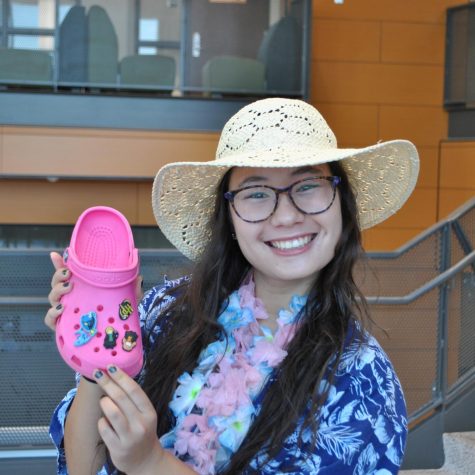Hollywood Whitewashing is Still a Prominent Issue in 2017
December 5, 2017
Initially, whitewashing simply meant covering something with white paint. Today, it’s Hollywood’s nasty habit of casting white actors in roles originally meant for people of color. Whitewashing deliberately changes a character’s original race, and thereby perpetuates discrimination against racial minorities. This lack of inclusion reinforces the message that only white stories are worthy of being told. As an Asian American, I’m especially aware of the lack of Asian representation; according to the USC Annenberg School for Communication and Journalism, Asian actors are only one percent of Hollywood’s leading roles.
Since the beginning, Hollywood has practiced the casting of whites in minority roles. The American film industry remains an environment where non-whites rarely appear on screen. Most recently, the discussion about whitewashing has been focused on Asian roles. This year, Scarlett Johansson made headlines for whitewashing when she played the lead role of ‘Ghost in the Shell,’ an adaptation of a Japanese anime classic. Similarly, Edward Zo was openly told not to even bother auditioning for the Japanese manga ‘Death Note,’ simply because he was too Asian. “They were not looking to see Asian actors for the role of Light Yagami,” Zo said in his YouTube video ‘Racist Hollywood? Death Note Whitewashing.’ Netflix wanted the main character Light Yagami, originally a Japanese man, to be played by a white actor and eventually settled on Nat Wolff, who is white.
Not only has Hollywood kept Asians out of acting jobs, but they have also rejected them equal pay. Fans of the hit series ‘Hawaii Five-0’ were surprised to hear that half of the original cast members decided to leave the show after seven successful seasons. After failing to receive equal compensation as fellow original cast members Alex O’Loughlin and Scott Caan, Asian actors Grace Park and Daniel Dae Kim decided to leave the show. Without Park and Kim to play the Asian characters, the original cast was reduced to only white actors.
Although racial ceilings in Hollywood are often set by executives and producers, actors are also culpable. White actors who receive roles meant for people of color ought to reject them. For instance, white actor Ed Skrein unknowingly accepted the role of a mixed Asian heritage character for the movie ‘Hellboy.’ In order to advocate ethnic diversity and empower disadvantaged actors, Skrein pulled out of the film. He received tremendous support for rejecting the role and opting out of whitewashing an Asian character. Skrein demonstrated a powerful way that actors can combat whitewashing.
Lastly, a not widely discussed, more personal experience of Hollywood’s whitewashing was during my reading of Rick Yancey’s ‘The 5th Wave’ trilogy. Near the end of the second book, ‘The Infinite Sea,’ Yancey describes the tough, intelligent, and overall awesome character, Ringer, as three-fourths Asian. After ‘The 5th Wave’ became a major motion picture, I dragged my sister out to Southdale AMC to see it. To my dismay, Ringer was portrayed by white actress, Maika Monroe. To add insult to injury, Monroe’s hair was dyed black to give her an Asian appearance. Unfortunately, dying someone’s hair black does not make them Asian.
Whitewashing of Asian roles is far too prevalent in Hollywood. Often, the most Asian representation I see is after the film when the screen goes dark and I can see my reflection staring back at me.











Jay • Dec 6, 2017 at 5:14 am
It wasn’t revealed that Ringer was of Asian decent until the second book came out which was after Maika Monroe had been cast and Maika dyed her hair black because in the book the only thing we knew about Ringer’s appearance was that she had pale skin and black hair.
Lucy Lamazares • Sep 1, 2018 at 7:34 pm
Are you sure about this? Because during the film, not only did she dye her hair black, but she wore constant, thick eye liner around her eyes to thoroughly change her appearance. Couldn’t she have pulled out once it was clear that her character was supposed to be Asian?
On the other hand, Tony Ravioli was cast in what was supposedly a white role.